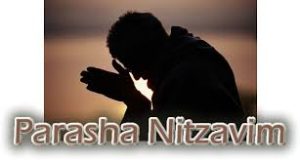 One of the concepts of Rosh Hashanah is the Book of Life. The image is that God is sitting up in heaven with a huge book in front of Him, in which He accounts for all our positive and negative deeds over the past year and decides whether we are worthy of reward (life) or punishment (death).
One of the concepts of Rosh Hashanah is the Book of Life. The image is that God is sitting up in heaven with a huge book in front of Him, in which He accounts for all our positive and negative deeds over the past year and decides whether we are worthy of reward (life) or punishment (death).
In the Bible, there is one specific mention of the Book of Life. In Psalms 69:29, it says: “May they be erased from the book of life and not be inscribed with the righteous.”
In the Talmud, in tractate Rosh Hashanah (16b), the rabbis taught that God sat with 3 books in front of him. The righteous were inscribed in the Book of Life. The evil were inscribed in the Book of Death, and those in between had judgement suspended until Yom Kippur. In reality, the vast majority of us are “in between;” we are neither all good nor all bad and we could all use a little motivation to improve.
In synagogue this Shabbat we read two parashot: Nitzavim and Vayeilech. Moses is nearing the end of his life and the Israelites stand before him to receive his final instructions and guidance and to reconfirm the covenant between God and His people. The people hear again all that will happen to them should they not follow God’s ways, and the blessings they will accumulate if they do, and they are presented with a choice.
I call the heavens and the earth today to bear witness against you: I have placed life and death before you, blessing and curse; and you shall choose life, so that you will live.
As parents we often present our children with a similar kind of “choice.”
“You can put down your electronic device now as I’ve asked and then you can have it again tomorrow. Or you can continue to argue with me and I will keep it for the next week.”
It’s a choice.
Similarly, the Israelite people are given the choice to follow God’s ways and live, or not, and die. Moses goes so far as to express what we as parents only imply in the “choices” we give to our children: You will make the right choice, you will choose life.
Several times throughout the text, Moses counsels the people as well as Joshua, the leader who will succeed him, to be strong and courageous. During morning prayers throughout the month of Elul we say Psalms 27, where again we are directed to “be strong and resolute.”
What do we learn from all this? That every one of us has an obligation to actively choose the kind of life we wish to lead, to be mindful of the choices we make and to acknowledge that every action and reaction is, in fact, our choice.
To make these choices, to choose a life of meaning and substance, requires courage and strength of character. The vast majority of us are “in between” all good and all evil. As the season of high holidays begins and that Book of Life is open above, we have the choice to reevaluate the choices we’ve made and perhaps choose to make some changes.
Parashat Nitzavim begins with the verse: You are standing today, all of you, before the Lord your God.
It is our choice to ask ourselves: Where am I standing today?
Wishing everyone a meaning holiday, and a Shana Tova u-metukah.
Shabbat Shalom.












